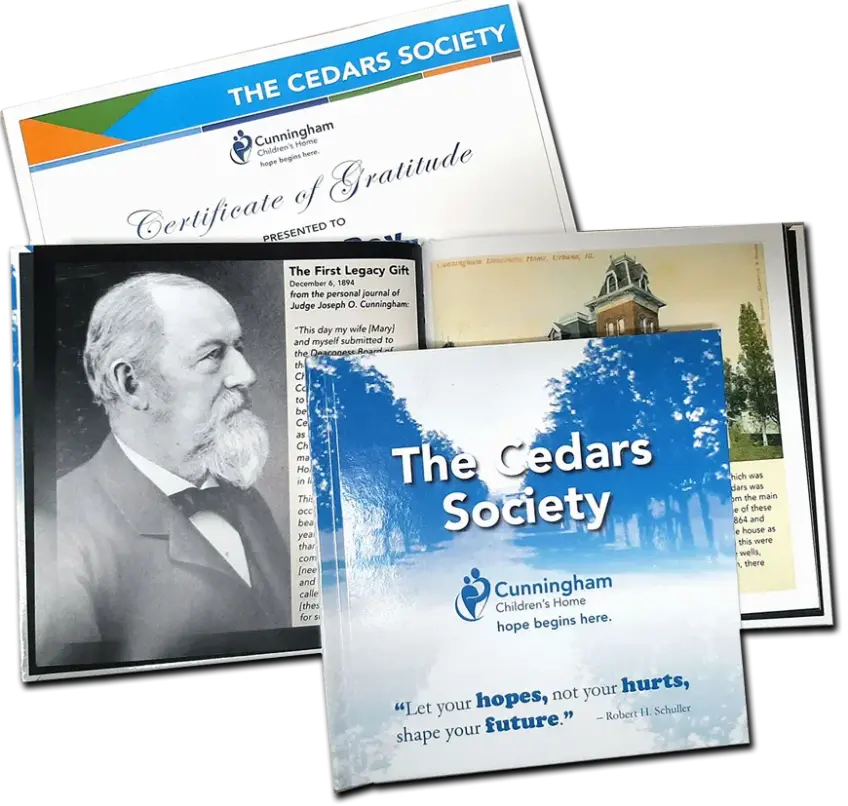
The Cedar Society
In 1895, Judge Joseph and Mary Cunningham realized their dream of creating a haven for orphaned and homeless children by donating their rural estate, known as “The Cedars,” because of the trees that lined the long driveway, to the Woman’s Home Missionary Society of the Methodist Church. This generous act transformed the property into an orphanage, and their legacy lives on at Cunningham Children’s Home, providing hope for over 125 years.
When make a Legacy Gift to Cunningham Children’s Home, you become a member of The Cedars Society, which pays tribute to that initial gift and honors those who carry on its legacy.
Leave your legacy
Would you consider making a planned or legacy gift to Cunningham? Your future contribution can make a significant impact on our ability to provide expert care and facilities for our children. Additionally, planned gifts offer valuable tax benefits and potential income for life. You have the flexibility to designate your gift to a specific purpose or leave it unrestricted to address our greatest needs.

With a planned gift, you can:
- Make a larger charitable gift
- Prioritize your family’s financial needs
- Provide inheritances to heirs with lower tax costs
- Decrease income tax and avoid capital gains taxes
- Diversify your investment portfolio
- Enhance income and rate of return
- Leave a legacy without relinquishing assets
Types of planned gifts:
- Bequest by Will: Leave a lasting legacy of generosity through specified bequests or residuary bequests, representing 80% of all planned gifts.
- Life Insurance: Designate your chosen organization as a beneficiary or transfer ownership of a paid-in-f
Learn more
Contact
Tim Manard, Development Officer
Be sure to talk to your family and friends about your plans and personal wishes in addressing family needs as well as your legacy gifts.
This is not professional legal or tax advice. Consult your legal and tax advisors regarding your specific situation. Let them know you are considering a planned gift to Cunningham Children’s Home.
